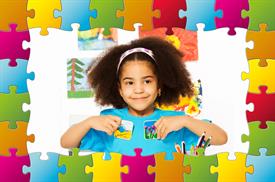
April is National Autism Awareness Month, the time when the Autism Society elevates efforts to spread awareness, promote acceptance and ignite change for this complex, lifelong developmental disability.
Autism typically appears during early childhood and can impact a person’s social skills, communication, relationships and self-regulation. It is defined by a certain set of behaviors and is a “spectrum condition” that affects people differently and to varying degrees.
For those affected by autism, the COVID-19 pandemic has been especially trying because of the immense disruption to routines and predictability.
“Families who have a child with autism are facing extraordinary challenges,” said Sarah Mohiuddin, M.D., Clinical Assistant Professor and Director, Multidisciplinary Autism Program, in an article for Michigan Health. “People with autism feel more comfortable with routines, which can make any change a stressful event.”
You can read the full article, which includes tips for families.
Schoolcraft’s Programs
Schoolcraft College has traditionally offered courses related to autism through the Early Childhood and Special Education Department. The courses are designed for both those pursuing an educational career and for families of individuals with autism seeking better ways to understand and support. Below are some of the details:
Credentials
- Autism Education Skills Certificate: 19 credit hours
- Autism Education Program AGS Degree: 60 credit hours
- Special Needs Para Educator Certificate: 30 credit hours
- Special Needs Para Educator AAS Degree: 61 to 66 credit hours
The Autism Education skills certificate is designed to provide students with the knowledge, skills and strategies for working with individuals with autism. Students may be current certified K-12 educators who would like to increase their understanding of autism, current or future paraeducators, and/or families of individuals with autism. The certificate provides the foundational information and direct experiences needed for increased understanding of educational protocol when working with individuals with autism.
Working as a Para Educator requires people to be supportive and nurturing while taking a strength-based perspective to match the strengths of each person with special needs. This curriculum contains theoretical and practical experiences designed to prepare students to work in public school special education classrooms, inclusive classrooms and resource rooms, institutional settings, sheltered workshops, job coaching programs, group homes or supported-living programs. Students learn to work effectively as members of professional educational and community-based teams that support persons with disabilities.
View more information about the programs at Schoolcraft College.
Facts from the Autism Society
- The prevalence of autism in the United States has risen from 1 in 125 children in 2010 to 1 in 54 in 2021.
- While there is currently no known single cause of autism, early diagnosis helps a person receive the support and services that they need, which can lead to a quality life filled with opportunity.
- Autism is characterized in the DSM-V* by:
- Persistent differences in communication, interpersonal relationships, and social interaction across different environments.
- Restricted and repetitive behavior, patterns, activities and interests.
*DSM-V stands for the fifth edition of the “Diagnostic and Statistical Manual of Mental Disorders,” which is the handbook used by health care professionals in the United States and much of the world as the authoritative guide to the diagnosis of mental disorders.